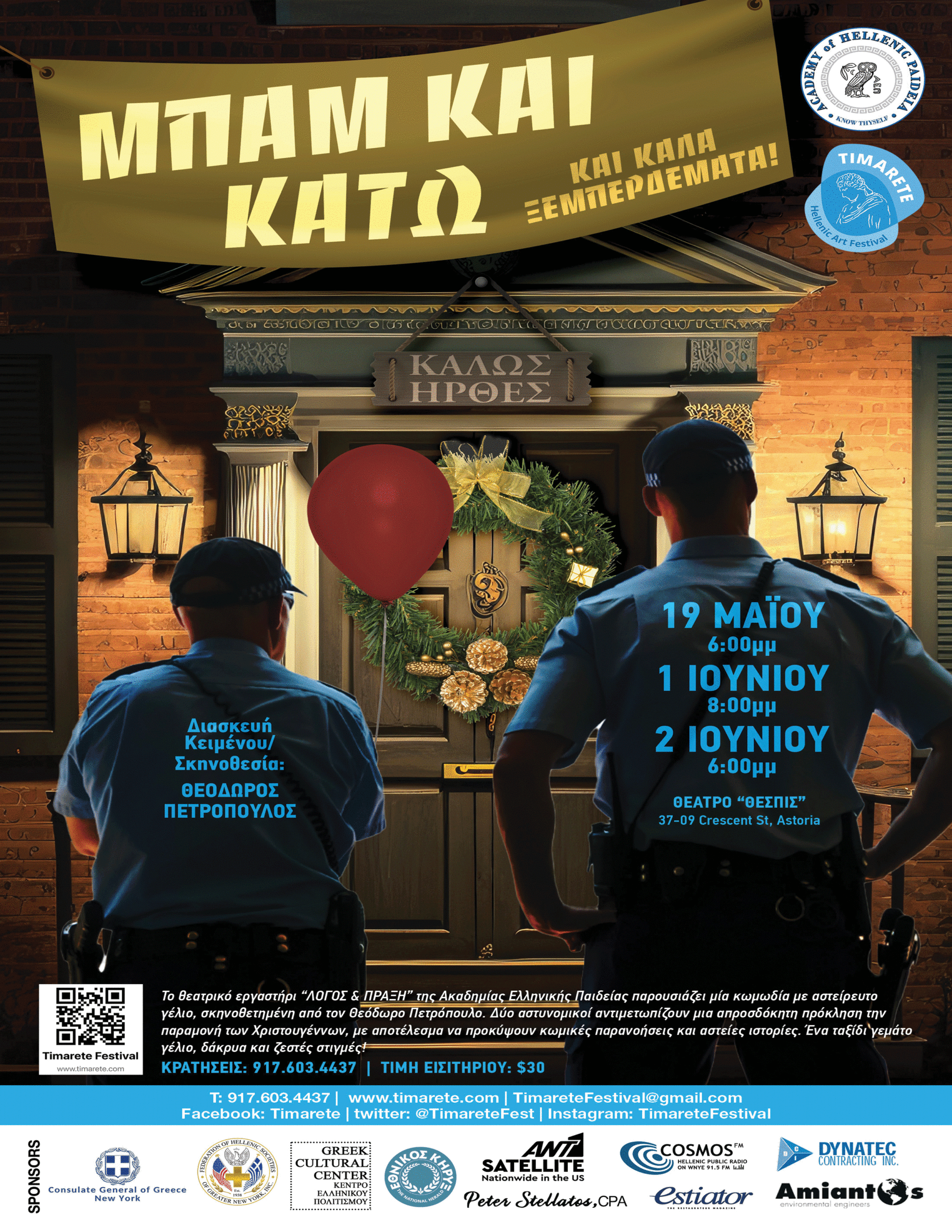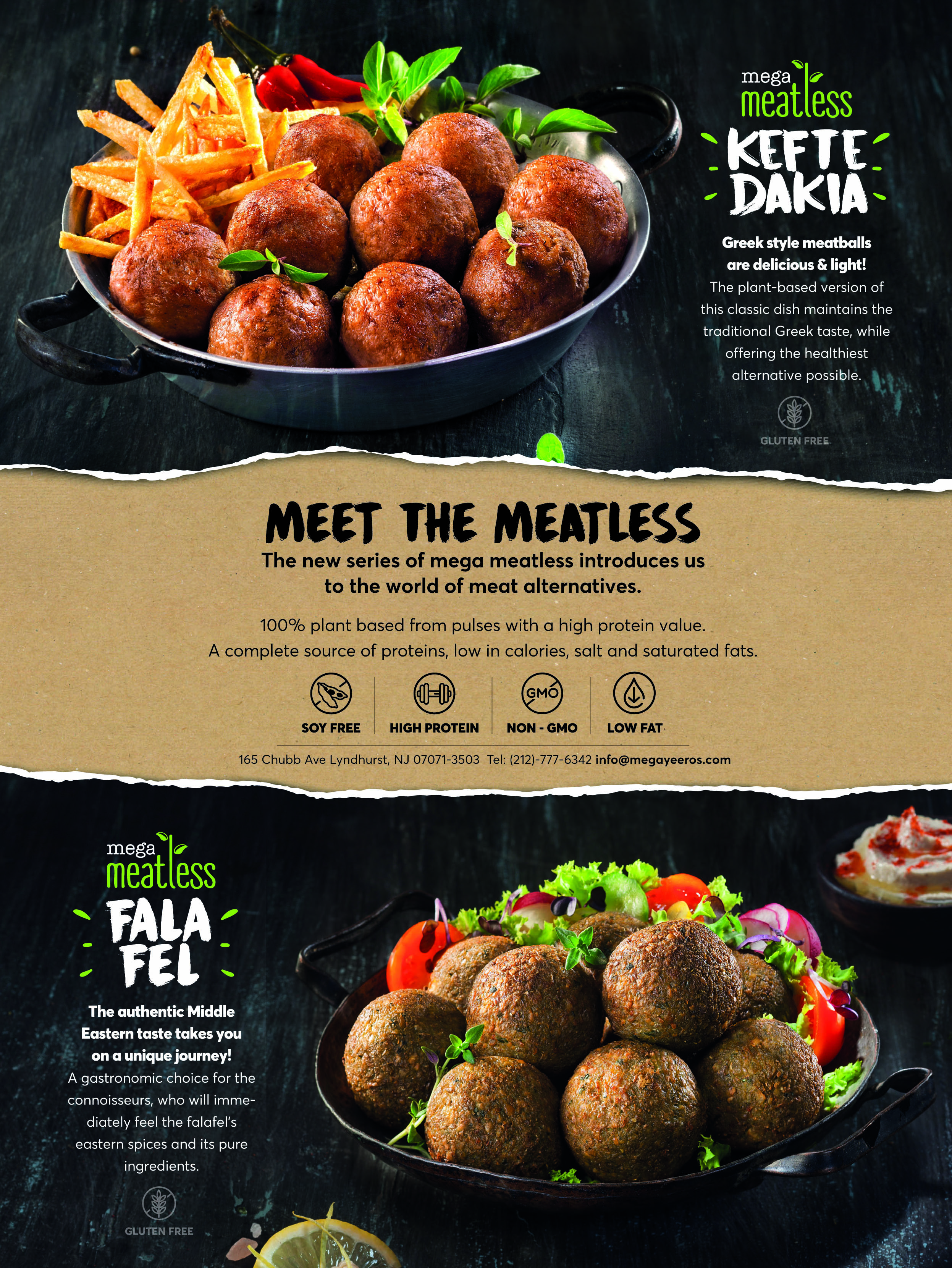From ROOTS to BRANCHES
Posted by estiator at 10 October, at 04 : 44 AM Print
Spirited Greek brothers give cocktail enthusiasts something to cheer about.
By Constantine Kolitsas

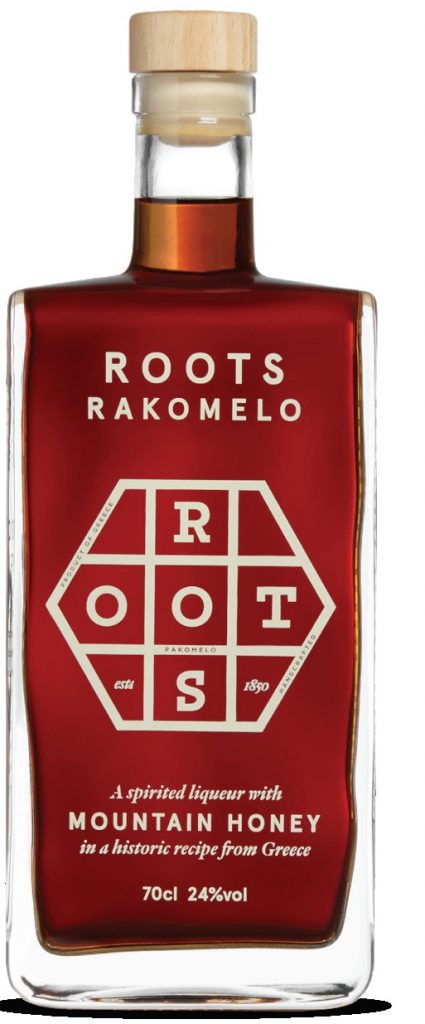
FOR MANY BARTENDERS and liquor enthusiasts, Greece has long been a black hole when it comes to quality spirits, with perhaps the single exception of Metaxa brandy, which has been around for ages (with Greek Americans referring to it as a “cognac” so as not to take a back seat to the French brandies that rightfully have exclusive claim to that spirit class). And sure, there’s ouzo. But while there are exceptional ouzos, it’s not a beverage that has wide acceptance beyond Greek homes and restaurants. And while better ouzos have been crowding out the inferior ones over the past decade, they still don’t deserve real estate on the top shelf of any but those restaurants specializing in Greek cuisine.
With the line of spirits from Roots, this is all changing.
Started in 2014 by brothers Nikolas and Manos Smyrlakis, the Roots label produces four exceptional premium spirits rooted in traditional Greek liqueurs, namely Mastic, Rakomelo, Diktamo, and Kanela. Packaged in stunning rectangular bottles with inspired representations of the Roots logo that symbolize the ingredients specific to each of the liqueurs, the line stands out on any bar’s top shelf. Most importantly, within each bottle, the substance delivers on the promise of the presentation.
From first sip, it’s obvious that quality is the priority of the Smyrlakis brothers. The mastic (“mastiha” in Greek), made from crystallized resin harvested from the mastic trees of Southern Chios, is ethereal. While the mastic flavor is familiar to many Greeks, the uninitiated marvel at its unique flavor profile—something that defies explanation while eliciting glowing reviews. The kanela, on the other hand, possesses a recognizable flavor to any palate. Named for the Greek term for cinnamon, Kanela (previously marked by Roots under the name Tentura) is from a 15th-century recipe that hails from the Ionian islands. A tincture (extract), Kanela is an exquisite liqueur that has notes of clove in addition to the cinnamon. Where the ingredients in all the other Roots liqueurs are sourced from different parts of Greece, the Kanela is imported from Ceylon. The common use of cinnamon in Greek cuisine, of course, is rooted in the historic spice trade from the East. (Cinnamon is not indigenous to the Mediterranean.)
Diktamo, perhaps the least familiar of the four liqueurs, is most commonly compared to the amaro class of spirits from Italy. A bitter herb-based drink, Dikatmo is made with a blend of 11 herbs found in the mountains of Crete, with the wild dittany (“diktamo” in Greek) being the most prevalent.
Finally, Rakomelo, the most popular of the four from a sales perspective, is a classic blend of raki (grape distillate similar to grappa) and “meli” (honey). For their recipe, the brothers source mountain thyme honey from Mani, the southernmost region of the Peloponnese. And there are no added sugars. The sweet notes are from the honey itself. In fact, all the ingredients used in the Roots line are natural.
As the name suggests, Roots liqueurs are made according to recipes revived from tradition, some of which date back to antiquity. In addition, the brothers employ “old and authentic” techniques to produce their liqueurs. And while each of the brothers comes from outside the spirits industry (Nikolas was an aerospace engineer working in Italy while Manos was working for the multinational P&G in Germany), they have roots in crafting liqueurs: Their family on their mother’s side has operated the Callicounis Distillery in Kalamata since 1850.
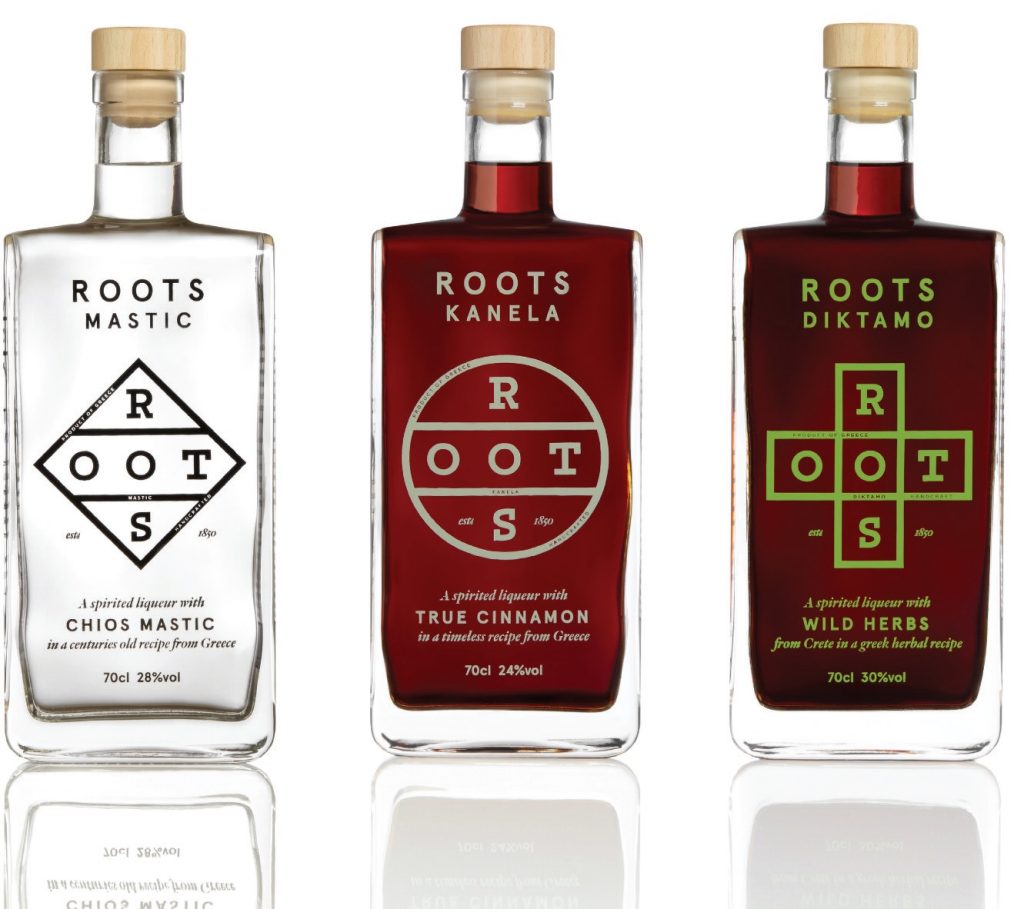
While each of the spirits is rooted in Greek tradition, Nikolas is quick to assert that the Roots line of liqueurs was not conceived as a Greek premium product but, rather, as a premium product from Greece. The distinction is profound— each liqueur is based on quality first; its “Greekness” is, of course, part of its story, but first and foremost these are world-class beverages. Its growing reach across international markets is a proofof-concept: Currently, the Roots line is sold in 14 countries and 10 US states.
“Seventy percent of our production is exported,” says Nikolas. “Our goal was always to market what Greece can offer to consumers abroad; we never really focused exclusively on the Greek market.”
For this reason, he says, “everything is in English.” “The domestic market is contracting,” he asserts. “We must respect our external customers.”
The ambition to grow a company that at once introducing a brand and a novel product to its target market is daring to say the least; but what might have been folly is steadily proving to be a success.
“People abroad are not acquainted with the traditional Greek liqueurs,” says Manos. “They don’t know what they are, how they are made, or how they can be consumed. To us, this is rather a challenge than an obstacle. The only thing needed is passion, a vision, patience, strong will, and lots of travel.”
Prior to COVID-19, the brothers were on foot continuously, marching their product everywhere from Greece’s best bars to spirits shows in Europe and on a tour of bars and restaurants in the U.S. northeast.
“Roots is not just another liqueur,” says Nikolas, who maintains that all four Roots spirits fall into the craft liqueur category, where uniqueness is valued. And while the goal is to reach beyond the limits of the Greek-American market, he recognizes and appreciates the role that Greek-American businesses are playing in the growth of the brand.
“Greek businesses are the ambassadors,” he says, maintaining that today’s Greek restaurant owners and managers want products of quality and will pay a premium where value is perceived. On the production side, he sees a hard shift toward quality products from Greece across the board, from agricultural products to bottled spirits.
“Younger people prefer quality products, and especially products that have a story,” he says. To this point, millennials in particular want to “experience” a product.
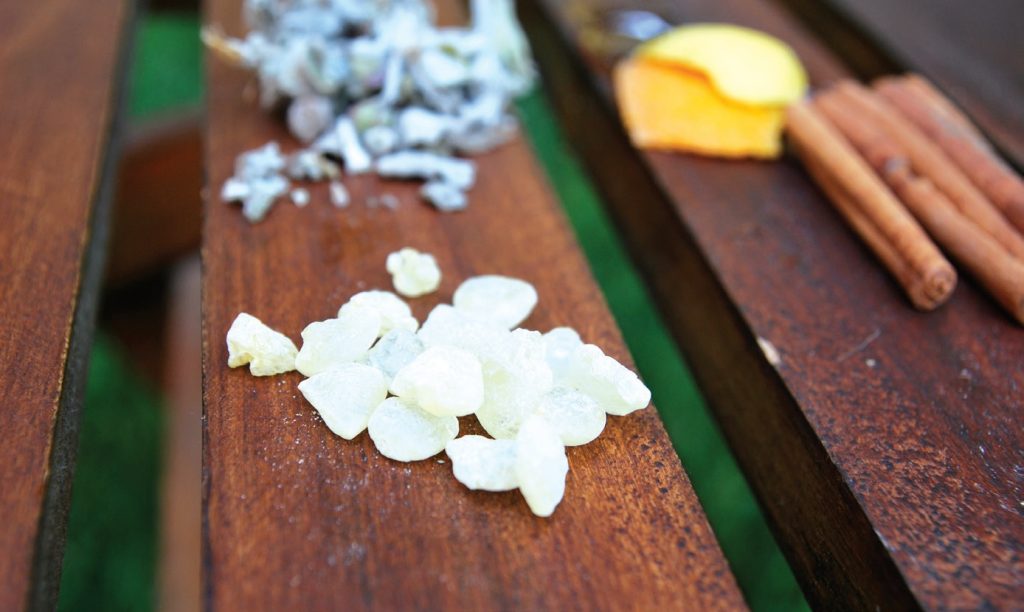
“Consumers nowadays are becoming more aware,” says Nikolas. “Young people and millennials want to know everything, and when it comes to drinking, they like to know what they are drinking, how and where it is made, and why they are drinking it. Additionally, bartenders themselves are much better educated than in the past on their subject, and they are willingly spreading this knowledge to their customers. Consumers have become specific and strict on what they want, demanding higher quality everywhere, from drinking at home to experiencing cocktails at a bar. This has raised the bar of product quality across the industry.”
On the horizon for the company is a bold venture into the growing no-alcohol and low-alcohol segment of the spirits industry. The brothers have produced two no-alcohol vermouths, one white and one red. These, marketed as “Divino,” are among the first (if not the first) vermouths to be produced without alcohol, serving a growing niche of consumers that are looking for adult beverages that allow them to live a no-alcohol lifestyle.
The logos on the Roots labels are ingeniously symbolic: Rakomelo is represented in a honeycomb pattern as a reference to the spirit’s honey base; Mastic is represented as a rhombus as a reference to the crystalline structure of the mastic resin; Kanela is a circle, referencing the cylindrical cross-section of the cinnamon stick; and Diktamo is a cross, which symbolizes the medicinal properties of the herbs that it is made from.
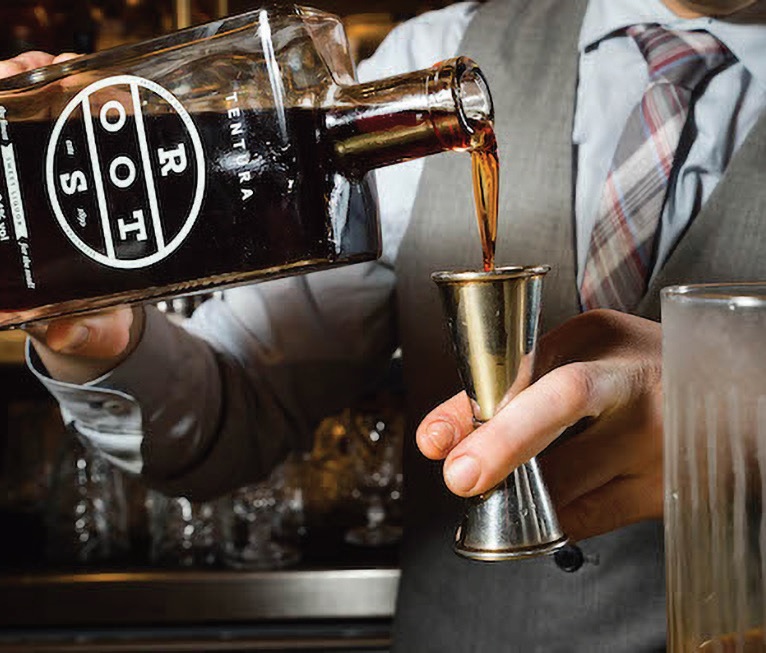
CREATING WORD OF MOUTH
As many Estiator readers know, I have been consulting restaurants for years, and I recently opened my own upscale Greek eatery in northwestern Connecticut. I knew I wanted a good Mastiha and a good Rakomelo on my bar, and I came across this unique brand, Roots. I created several cocktail recipes (particularly with the Rakomelo) and would frequently offer them complimentary after dinner, knowing that people may not venture to order an unfamiliar $8 digestif. Certainly there’s not much word of mouth about these products, so I decided to try to help create the market for them. Within two months of being in business, Roots Rakomelo became one of my top-five-moving inventory items. Four liquor stores in my small town are now selling it, and mine is the only restaurant in the area that carries it, which makes my beverage program special and unique.
The Socratic Method
1.5 oz Redemption bourbon .75 oz Roots Rakomelo Dash Angostura bitters Bruised fresh sage Bruise the sage in a cocktail shaker with the bitters. Pour into a rocks glass and add the bourbon and rakomelo. Add a large ice cube that will fill the glass (from a silicon mold). Garnish with an additional sage leaf.
Greca Mule
1 oz Tito’s Handmade Vodka .5 oz Roots Rakomelo .5 oz fresh lime juice Gosling Ginger Beer orange Fill a copper mule mug with ice, pour in the vodka, rakomelo, and lime juice and stir. Top with ginger beer and garnish with an orange slice.




